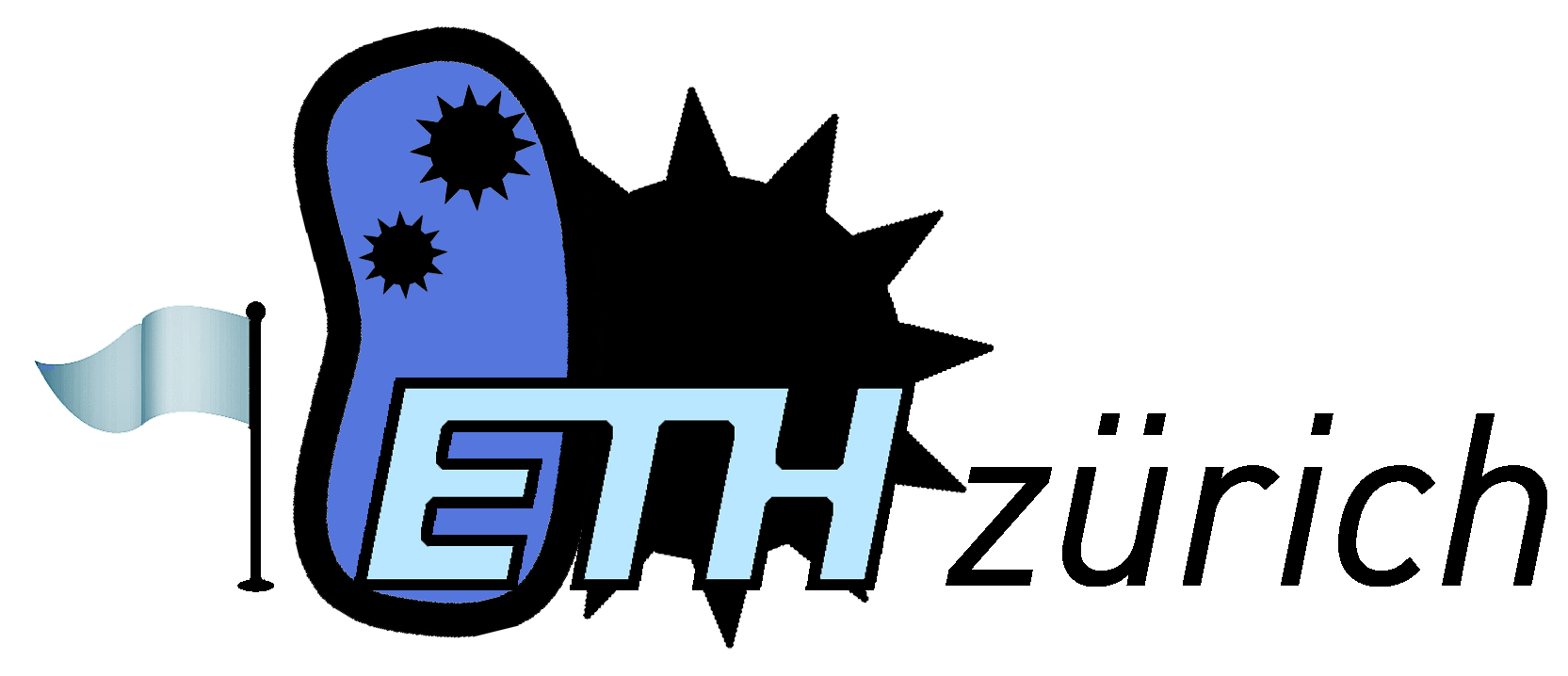|
|
| Line 4: |
Line 4: |
| | <p>The work in the lab as well as the modeling part was fulfilled by the team members only. <br>We want to thanks our Advisors for supporting the project design, result interpretation and trouble shooting.</p> | | <p>The work in the lab as well as the modeling part was fulfilled by the team members only. <br>We want to thanks our Advisors for supporting the project design, result interpretation and trouble shooting.</p> |
| | | | |
| - | <h1><b>Acknowledgement</b></h1> | + | <h1>Acknowledgement</h1> |
| | | | |
| | Thanks to <i>Dr. Johannes Haerle</i> (from Panke Group, D-BSSE Basel) for the hydrolase parts<br> | | Thanks to <i>Dr. Johannes Haerle</i> (from Panke Group, D-BSSE Basel) for the hydrolase parts<br> |
| | Thanks to the <i>iGEM 2012 Team ETH Zurich</i> for the general structure of the template header code<br> | | Thanks to the <i>iGEM 2012 Team ETH Zurich</i> for the general structure of the template header code<br> |
| - | <br>
| |
| - | <h1><b>References</b></h1>
| |
| - | <b>Quorum sensing</b>
| |
| - |
| |
| - | <p>Hai-Bao Zhang, Lian-Hui Wang, Lian-Hui Zhang, 1 JUN 2007 ; DOI: 10.1002/9780471729259.mc01c03s05 UNIT 1C.3 <br><i>Detection and Analysis of Quorum-Quenching Enzymes Against Acyl Homoserine Lactone Quorum-Sensing Signals</i>[http://onlinelibrary.wiley.com/doi/10.1002/9780471729259.mc01c03s05/full Wiley Online library]</p>
| |
| - |
| |
| - | <p>Ravn L, Christensen AB, Molin S, Givskov M, Gram L. J Microbiol Methods ; 2001 Apr;44(3):239-51<br>
| |
| - | <i>Methods for detecting acylated homoserine lactones produced by Gram-negative bacteria and their application in studies of AHL-production kinetics</i> [http://www.ncbi.nlm.nih.gov/pubmed/11240047 PubMed]</p>
| |
| - |
| |
| - | <p>Lingchong You, Robert Sidney Cox, Ron Weiss3 & Frances H. Arnold; Nature 428, 868-871<br><i>Programmed population control by cell–cell communication and regulated killing</i></p>
| |
| - |
| |
| - | <p>Ramiz Daniel1 Jacob R. Rubens Rahul Sarpeshkar & Timothy K. Lu;doi:10.1038/nature12148<br>
| |
| - | <i>Synthetic analog computation in living cells</i> [http://www.nature.com/nature/journal/vaop/ncurrent/full/nature12148.html Nature]</p>
| |
| - |
| |
| - | <p>Subhayu Basu, Yoram Gerchman, Cynthia H. Collins, Frances H. Arnold & Ron Weiss;Nature 434, 1130-1134 (28 April 2005)<br><i> A synthetic multicellular system for programmed pattern formation </i>[http://www.nature.com/nature/journal/v434/n7037/abs/nature03461.html Nature]</p>
| |
| - |
| |
| - | <p>Grant D. Geske, Margrith E. Mattmann, Helen E. Blackwell;Bioorganic & Medicinal Chemistry Letters
| |
| - | Volume 18, Issue 22, 15 November 2008, Pages 5978–5981<br>
| |
| - | <i>Evaluation of a focused library of N-aryl l-homoserine lactones reveals a new set of potent quorum sensing modulators</i>
| |
| - | [http://www.sciencedirect.com/science/article/pii/S0960894X08008652link Science direct]</p>
| |
| - |
| |
| - | <p>Horswill AR, Stoodley P, Stewart PS, Parsek MR; Anal Bioanal Chem. 2007 Jan; 387(2): 371–380.<br>
| |
| - | <i>The effect of the chemical, biological, and physical environment on quorum sensing in structured microbial communities</i>
| |
| - | [http://www.ncbi.nlm.nih.gov/pmc/articles/PMC1797063/ Pubmed] </p>
| |
| - |
| |
| - |
| |
| - | <b>Hydrolases</b>
| |
| - | <p>J. C. Jokerst,J. A. Adkins,B. Bisha,M. M. Mentele, L. D. Goodridge and C. S. Henry ; Chem. 2012, 84, 2900−2907<br>
| |
| - | <i>Development of a Paper-Based Analytical Device for Colorimetric, Detection of Select Foodborne Pathogens</i>
| |
| - | [http://pubs.acs.org/doi/pdf/10.1021/ac203466y pubs.acs]</p>
| |
| - |
| |
| - | <p>Choi JH, Jeong KJ, Kim SC, Lee SY; Appl Microbiol Biotechnol. 2000 Jun; 53(6): 640-5.
| |
| - | <i>Efficient secretory production of alkaline phosphatase by high cell density culture of recombinant Escherichia coli using the Bacillus sp. endoxylanase signal sequence.</i>[http://www.ncbi.nlm.nih.gov/pubmed/10919319 PubMed]</p>
| |
| - |
| |
| - | <p> Kiernan JA; Biotech Histochem. 2007 Apr; 82(2):73-103. <span id="Kiernan2007"></span>
| |
| - | Indigogenic substrates for detection and localization of enzymes. [http://www.ncbi.nlm.nih.gov/pubmed/17577701 PubMed]</p>
| |
| - |
| |
| - | <p> Jefferson RA; US 5432081 A. 1995 Jul. <span id="Jefferson1995"></span>
| |
| - | <i>Host cells transformed with the ''E. coli'' glucoronide permease gene</i> </p>
| |
| - |
| |
| - | <p> Farias T, Mandrich L, Rossi M, Manco G; Protein Pept Lett. 2007; 14(2):165-9. <span id="Farias2007"></span>
| |
| - | <i>Biochemical and thermostability features of acetyl esterase Aes from Escherichia coli.</i>
| |
| - | [http://www.ncbi.nlm.nih.gov/pubmed/17305603 PubMed] </p>
| |
| - |
| |
| - | <p> Kanaya S, Koyanagi T, Kanaya E; Biochem. J. 1998; 332:75-80. <span id="Kanaya1998"></span><br>
| |
| - | <i>An esterase from ''Escherichia coli'' with a sequence similarity to hormone-sensitive lipase.</i>
| |
| - | [http://www.ncbi.nlm.nih.gov/pubmed/9576853 PubMed] </p>
| |
| - |
| |
| - | <p> Joly N, Danot O, Schlegel A, Boos W, Richet E; J Biol Chem. 2002 May; 277(19):16606-13. <span id="Joly2002"></span><br>
| |
| - | <i>The Aes protein directly controls the activity of MalT, the central transcriptional activator of the ''Escherichia coli'' maltose regulon.</i>
| |
| - | [http://www.ncbi.nlm.nih.gov/pubmed/11867639 PubMed]</p>
| |
The work in the lab as well as the modeling part was fulfilled by the team members only.
We want to thanks our Advisors for supporting the project design, result interpretation and trouble shooting.
Acknowledgement
Thanks to Dr. Johannes Haerle (from Panke Group, D-BSSE Basel) for the hydrolase parts
Thanks to the
iGEM 2012 Team ETH Zurich for the general structure of the template header code
 "
"

